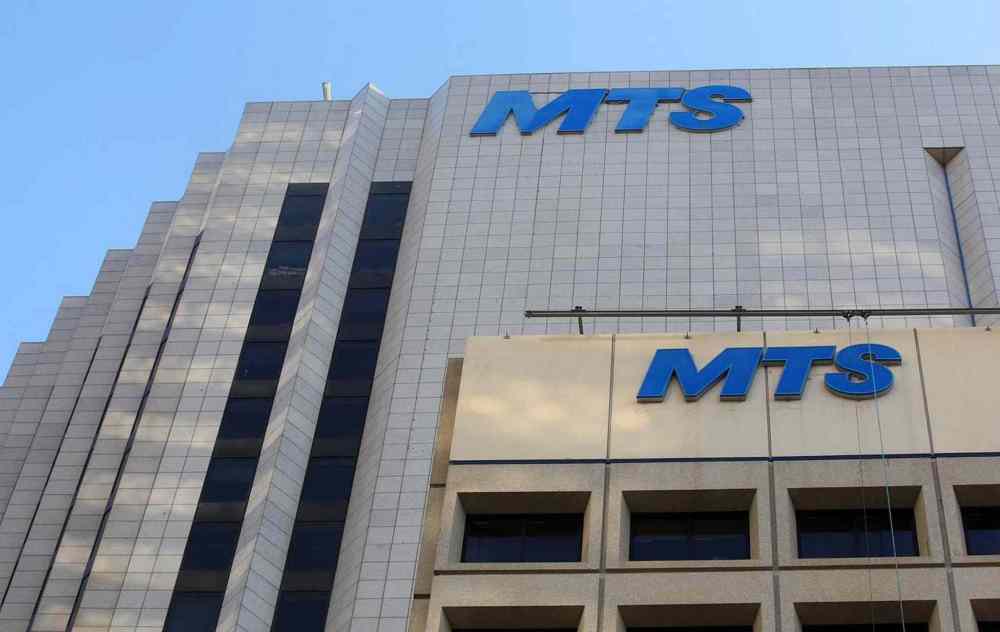Bell-MTS deal no ordinary case for regulators
Advertisement
Read this article for free:
or
Already have an account? Log in here »
To continue reading, please subscribe:
Monthly Digital Subscription
$0 for the first 4 weeks*
- Enjoy unlimited reading on winnipegfreepress.com
- Read the E-Edition, our digital replica newspaper
- Access News Break, our award-winning app
- Play interactive puzzles
*No charge for 4 weeks then price increases to the regular rate of $19.95 plus GST every four weeks. Offer available to new and qualified returning subscribers only. Cancel any time.
Monthly Digital Subscription
$4.99/week*
- Enjoy unlimited reading on winnipegfreepress.com
- Read the E-Edition, our digital replica newspaper
- Access News Break, our award-winning app
- Play interactive puzzles
*Billed as $19.95 plus GST every four weeks. Cancel any time.
To continue reading, please subscribe:
Add Free Press access to your Brandon Sun subscription for only an additional
$1 for the first 4 weeks*
*Your next subscription payment will increase by $1.00 and you will be charged $16.99 plus GST for four weeks. After four weeks, your payment will increase to $23.99 plus GST every four weeks.
Read unlimited articles for free today:
or
Already have an account? Log in here »
Hey there, time traveller!
This article was published 14/12/2016 (3314 days ago), so information in it may no longer be current.
It’s looking increasingly unlikely Bell’s $3.9-billion acquisition of MTS is going to close before the new year.
Whether that means regulators are discovering deal-breakers or how powerful those obstacles may be cannot be known at this point.
It’s safe to say is this deal, originally announced at the beginning of May, is taking longer than most to clear the Competition Bureau.

Between 2009 and 2012 the average length of time to conclude reviews of so-called complex mergers was between 30 and 45 days.
The Bell-MTS deal is going on more than six months since it was announced.
Ben Klass, a PhD student at Carleton University, contributes to a research project that keeps tabs on and collects data and analysis on the state of media concentration and ownership in Canada. He has studied the activities of the Competition Bureau and says it is able to conclude 90 per cent of its files within the average time frame.
Like everyone else, including officials at Bell and MTS, he is not privy to the deliberations of the Competition Bureau, which are done in confidence.
“But what I am willing to say with confidence is that it (the Bell-MTS deal) is among the 10 per cent of complex mergers that falls outside the time frame,” Klass said.
He is of the opinion that the deal would hurt competition in Manitoba where, he contends, the existence of four competing wireless service providers has kept fees lower than elsewhere in the country.
At a public event in Winnipeg in the summer, Bell CEO George Cope made the case MTS rates were on average with the rest of the country.
There are so many hybrid cellphone plans it is difficult to make a direct comparison.
For the record, as well as on background, MTS officials are not concerned about the pace of the regulatory review. Their official pronouncements on the regulatory process since the beginning was that the deal was expected to close by the end of this year or during the first quarter of 2017.
“The timeline is consistent with what we stated when the deal was announced in May — closing would be at the end of this year or in early 2017. We continue to work co-operatively with Bell and the regulators to secure the necessary approvals,” said Paul Beauregard, MTS’s chief corporate and strategy officer and corporate secretary.
The Competition Bureau is required to conduct its investigations confidentially, so the timing of its conclusions are never known in advance.
“That being said,” Sophie Paluck-Bastien, a spokeswoman for the Competition Bureau said, “In this case, it is on the public record that the Bureau filed applications with the Federal Court seeking orders requiring Rogers and Telus to provide information related to the bureau’s review.”

Since Rogers and Telus account for approximately 50 per cent of the Manitoba wireless market, it makes sense their experience in the market would be germane to the Competition Bureau’s investigation of the competitive market here.
That court action may be slowing the process down, but it is not unusual.
“We had fully expected that the Competition Bureau would be diligent in its review, which would include in the normal course requesting and reviewing information from a range of stakeholders in Manitoba,” Beauregard said.
Both parties to the transaction anticipated the impact the deal may or may not have on the competitive landscape, which is why a sub-deal was announced at the outset whereby one-third of MTS’s wireless customers would be sold to Telus after the deal was completed along with one third of MTS dealer locations.
It is likely some kind of reallocation of wireless spectrum holdings will also need to take place. Industry Science and Economic Development Canada conducts the auction and sets the rules for spectrum licences and includes caps on how much spectrum companies can hold in certain markets. A Bell-MTS merger would put it over the limit in some frequencies.
Greg McDonald, an analyst with Macquarie Securities, said he believes the process is taking longer than expected and that the Competition Bureau does have concerns that competition will be impaired going from four to three players in the wireless market.
“My base case is that further remedies will be required… spectrum sales and potentially further subscriber sales,” he said. “Given spectrum concentration restrictions, Shaw is likely the only buyer.”
martin.cash@freepress.mb.ca


